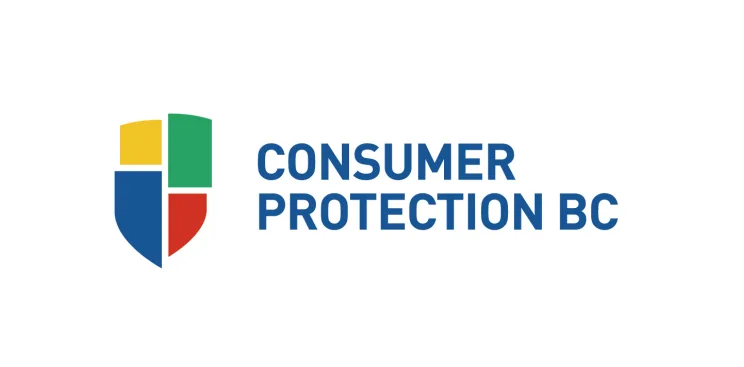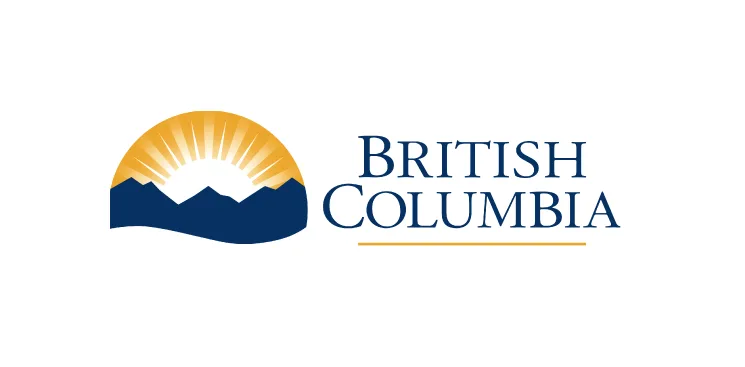
In year two of my five-year car loan, I missed a payment. The loan was secured. Can the creditor just take my car?
You’ve borrowed money from someone and can’t pay it back. They may now seek to take your property to satisfy the debt. A creditor’s right to take your property (or repossess it) depends on the terms of your agreement with them and the property involved. Learn your rights when a creditor wants to take your property.
What you should know
“I missed a payment on my car loan. The dealership told me I that if I didn’t make the next payment, they would repossess my car. I caught back up with my payments right away, and the dealership agreed to reinstate my loan agreement. I was surprised to learn they could repossess my car so quickly.”
– Riley, Vancouver

When you borrow money, the lender can ask for security. This is a property interest you give them that ensures you’ll pay them back. The property is called collateral. This arrangement is typically put in writing in a security agreement. The debt becomes a secured debt and the creditor a secured creditor. This gives them special rights under the law.
For example, say you want to buy a car. The car dealership lends you the money to do so. But first they have you sign an agreement that gives them a security interest in the car. Now the dealership has certain rights to the car. If you default on an obligation under the security agreement (such as miss a loan payment), they can take the car (also called “seizing” or “repossessing” it) and sell it.
If they intend to sell it, they must use commercially reasonable means to get a reasonable price for it. This doesn’t mean they must advertise in every paper from here to Calgary, but they must use reasonable efforts to get a fair market price.
After the sale, the creditor must pay you any amount left over after they are fully paid.
The “seize or sue” rule
Under the law in BC, two rules kick in to protect you if the property you put up as collateral is consumer goods. This is property that’s “used or acquired for use primarily for personal, family or household purposes.”
For this type of collateral, if you default on a secured debt, the creditor can repossess the property. Or they can sue you for the full amount of the debt. But they cannot do both. This is called the seize or sue rule. It means the creditor has to decide whether to seize the collateral or take you to court.
If you’ve paid back at least two-thirds of what you owe
If you’ve paid back at least two-thirds of what you owe on a secured debt relating to consumer goods, the creditor needs a court order to repossess the collateral. If you’ve paid back less than two-thirds, the creditor can repossess the collateral without going to court.
(A creditor who doesn’t have security must go to court in all circumstances before they can repossess your property. See below.)
If the creditor wants to keep the collateral
A creditor who plans to keep collateral they seized must give you written notice of their proposal to do so. You then have 15 days to give them a “notice of objection” if you don’t want them to keep the property. If you do so, the creditor must then sell the collateral, following the rules described above.
If you declare bankruptcy
If you declare bankruptcy, a secured creditor can take any collateral you put up as security. Our guidance on declaring bankruptcy explains this more fully.
The law sets out the procedure to be followed after property you put up as collateral is repossessed.
The secured creditor must give you at least 20 days’ written notice before selling the property. The notice must include the amount required to pay off the debt, as well as the amount in arrears. Arrears are payments that were due but have not yet been paid.
If the collateral was consumer goods (explained above), the notice must spell out that as long as you pay off the arrears on the debt, together with the expenses of repossessing the property, you may reinstate the security agreement.
The creditor must then return the repossessed property. Then you’d go back to making payments under your agreement as if the default hadn’t occurred.
Being proactive
If you know you won’t be able to make your payments on a secured debt, talk to the creditor. See if they will hold off on repossessing the property you put up as collateral until you can afford to make full payments. See our guidance on negotiating with creditors.
Under the law in BC, if you default on a debt that is not secured, the creditor can’t just come and take your property. They have to take you to court first.
An unsecured creditor must first bring a legal action against you for the debt. They need to get a court judgment against you that confirms you owe the debt.
If the property is personal property, the unsecured creditor can then ask the court for a second order. This order is called a writ of seizure and sale. It gives the creditor the right to take (or “seize”) your property to pay off the debt. The creditor gives the order to a court bailiff to carry out. The law allows you to protect certain property from seizure. See below for details of this process.
When it comes to real property (land), the creditor can register the judgment against the property without a second order. Once the judgment is registered, the creditor can apply to the court to sell the property to pay the debt.
If you own property jointly
Jointly-owned property can’t be seized unless the creditor has a judgment against both owners. The co-owner may have to swear an affidavit that they are a co-owner.
Most creditors hire a bailiff to repossess a debtor’s property. Confusingly, there are two types of bailiffs in BC, and the rules for them are different.
Licensed bailiffs act where money is owed under an agreement. The repossession doesn’t involve a court order. These bailiffs must be licensed by Consumer Protection BC. They must follow the debt collection laws.
Court bailiffs are hired to carry out court orders on behalf of a creditor. Court bailiffs are appointed by government. They don’t have to be licensed by Consumer Protection BC (though they often are). The rules that apply are the court order enforcement laws.
If the bailiff is acting under an agreement
If a licensed bailiff is trying to take your property, the first question is: Do they have the legal authority to do so? Ask to see the security agreement under which they are acting.
As well, there are limits on how a licensed bailiff can carry out the repossession.
A bailiff can’t remove any property from inside your home unless you or another adult resident are there. The exception is if the bailiff has a court order specifically allowing them to do so.
A bailiff can’t communicate with you in a way that amounts to harassment. Examples of harassment include:
using threatening, profane, intimidating, or coercive language
exerting undue, excessive, or unreasonable pressure
This rule also covers a member of your family or household, a relative, neighbour, friend or acquaintance, or your employer.
Check whether a bailiff is properly licensed
Bailiffs acting where money is owed under an agreement must be licensed by Consumer Protection BC. Check the Consumer Protection BC licence search to find out if a bailiff is properly licensed.
If the bailiff is carrying out a court order
If a court bailiff is trying to repossess your property under a court order, the first question for them is: Do they have the legal authority to do this? Ask to see the court order (the “writ of seizure and sale”) under which they are acting.
Check whether a bailiff is on the authorized list
Under BC law, a writ of seizure and sale can only be carried out by court bailiffs. The government appoints bailiff companies to provide court bailiff services throughout the province. Check this list of authorized court bailiffs to confirm whether a bailiff company is authorized.
Under the law in BC, when a creditor seeks to repossess your property under a court order, you can protect certain personal property from being repossessed. Exempt property includes:
necessary clothing of the debtor and the debtor's dependants
household furnishings and appliances, up to a value of $4,000
one car, up to a value of $5,000 ($2,000 if the debt is for child support)
tools and other personal property the debtor uses to earn income, up to a value of $10,000
medical and dental aids required by the debtor and the debtor's dependants
the principal residence of a debtor, if their equity in the residence is less than $9,000 ($12,000 if the residence is in the Metro Vancouver or Victoria areas) and the debtor is not a party to a proceeding involving a mortgage
If the value of property exceeds the amount set by the exemption rules, the property can be seized and sold. Secured creditors are paid first. The debtor gets any leftover cash up to the allowable exemption.
The law sets out a procedure to follow if the debtor and the court bailiff disagree about the value of exempt property.
Property used as collateral is not exempt
Any property that’s put up as collateral for a secured debt can still be seized. For example, say you purchased a car from a dealership. The dealership financed your purchase, and in return you gave them a security interest in the car. If you default on the loan, the dealership can repossess the car, and the vehicle exemption won’t apply.
Claiming the exemption
A debtor must claim any exemption within two days of the property being seized. See work out the problem, below, for details on claiming the exemption.
Under the law in BC, a "repairer" can hold on to any property they repaired and sell it.
A repairer is someone who puts money, skill or materials towards repairing personal property (the law speaks of “altering and improving any chattel”). Common examples of repairers include car mechanics, jewellers, or boat marinas.
The commercial lien
A repairer can put a lien on the property if you haven’t paid for the services they provided. A lien is a legal claim made on someone else's property to make sure they pay a debt.
The lien gives the repairer the right to seize and sell the property to pay off the debt for the repair work.
You may be better off paying the repairer
If you’re unhappy with a repairer’s work, withholding payment is usually not a good idea. The repairer may end up selling your property, which would be valid under BC laws. You may be better off paying the repairer, getting your property back, and taking the repairer to court. If you are in a dispute about repair work, considering seeking legal advice. See below under who can help.
Under the law in BC, a debtor can ask the court to order the property be returned pending the outcome of a legal action. This is called an interim order. For example, say a court bailiff seizes your car on behalf of a creditor. You say you’ve paid the creditor in full. You start a legal action for the return of the car. You can apply to court to have the car returned to you until your claim is resolved.
Getting legal help
Seek legal advice if you think your property has been wrongfully seized. See below, under who can help. Ask about your options to have the property returned to you as soon as possible.
Work out the problem
If your property is repossessed by a secured creditor, you have the right to reinstate the security agreement by paying off what you owe — as long as the property is consumer goods. For details, see above under what you should know.
To reinstate the agreement, you must pay off the arrears on the debt (payments that were due but have not yet been paid), together with the expenses of repossessing the property.
If you do this, the creditor must return the repossessed property. You’d then go back to making payments under your agreement as if the default hadn’t occurred.
For any type of repossession, you can try negotiating with the creditor. Explain your financial situation. If you’re having trouble making debt payments, propose a new repayment plan. A creditor may agree to:
charge you a lower interest rate
extend the time you have to repay
reduce the amount of your payments
See our guidance on negotiating payment terms.
If you have multiple creditors
If you have multiple creditors, see our guidance on options for getting out of debt. Debt consolidation can be a good choice if you are having trouble with multiple payments. A consumer proposal might be appropriate if you have excessive debt but want to avoid bankruptcy.
Under the law in BC, when a creditor seeks to repossess your property under a court order, you can protect certain personal items. For details, see above under what you should know.
You must claim any exemption within two days of the property being seized. The law doesn’t set out a specific procedure to claim the exemption. A good approach is to start by making a list of the property you want to exempt.
File a copy of the list with the court registry where the court order was issued. Personally deliver a copy to the court bailiff.
If you think your property was wrongfully taken, you can start a legal action to have it returned. See what you should know, above.
If your claim is for less than $35,000, you can sue in Small Claims Court. It’s faster and less complicated than suing in the British Columbia Supreme Court.
If your claim is for less than $5,000, it will be heard by the Civil Resolution Tribunal. This is an online tribunal that encourages a collaborative approach to resolving disputes.
A lawyer can explain your options and help you decide on the best course of action. If you don’t have a lawyer, there are options for free or low-cost legal help.
Who can help

Consumer Protection BC
Regulates licensed bailiffs and oversees their conduct in repossessions.

Courthouse Services
A branch of the Ministry of the Attorney General that deals with court bailiffs.

Access Pro Bono's Legal Advice Clinics
Volunteer lawyers provide 30 minutes of free legal advice to people with low or modest income.

Access Pro Bono’s Everyone Legal Clinic
Clinicians provide affordable fixed-fee services on a range of everyday legal problems.

BC Legal Referral Service
Helps you connect with a lawyer, notary or paralegal for a free 15- to 30-minute consult to see if you want to hire them.

BC Legal Directory
Search for a lawyer by community, area of law, or language spoken. From the Canadian Bar Association, BC Branch.

